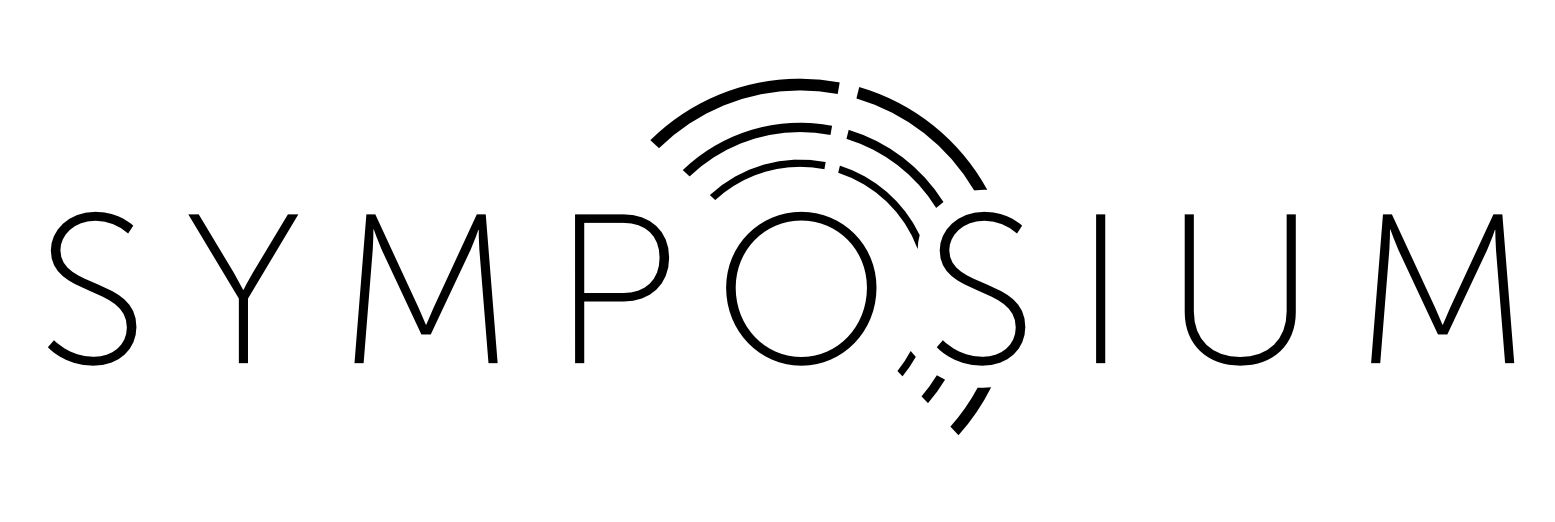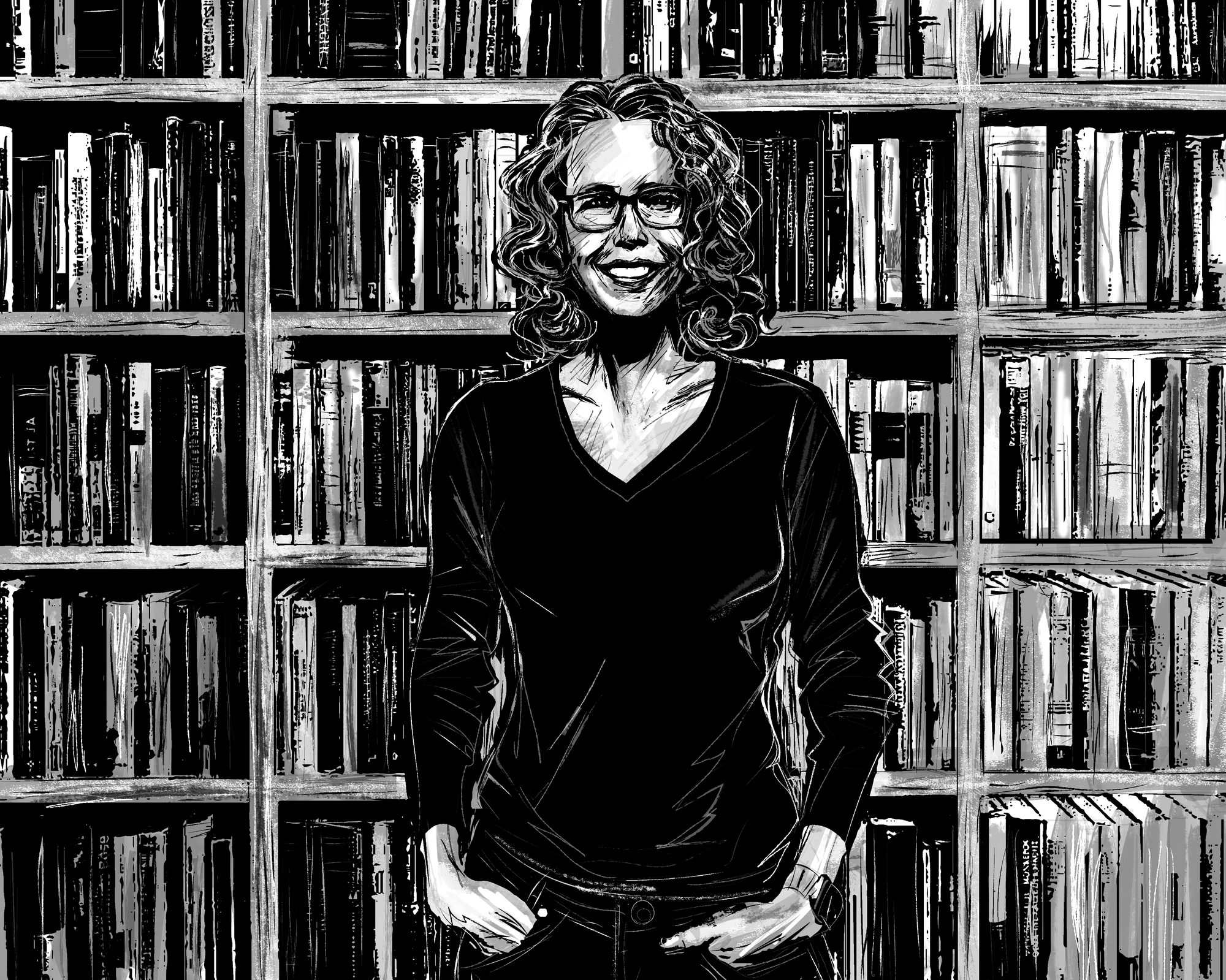
The Book of Jane
Life as a writer requires finding a champion, or at least someone whose vast experience can be a beacon of light, leading you out of the darkness.
Sometimes, it’s a parent. Sometimes, it’s a complete stranger. Sometimes, it’s a fictional character who inspires you from beyond.
And sometimes, your champion turns out not to be a superhero, but even better—a person who is vulnerable, honest, and willing to peel back their veneer and speak candidly about the realities of pursuing an artistic life.
Mention the name Jane Friedman and novelists grin with enthusiasm. Hopeful writers race to her site and soak in as much publishing knowledge as they can, including the secrets of finding an agent and publisher. In short, Jane demystifies the publishing process.
“Guru” fails to describe her, though, as she never espouses to be the be-all, end-all of experts. Instead, she opens her mind to opposing opinions, scours her wealth of resources to seek answers on the ever-changing world of publishing, and above all, understands writers' minds and our struggles.
She is one of us. Which makes her the bright light we all need.
Yet no one is born a champion. Perhaps they simply become the champion they needed for their younger selves.
Jane’s parents had her late in life, the product of second marriages for both. You could call her an “oops child,” but I’d argue the world demanded her presence.
Years ago, Jane presented me with a shot glass that read, “Never drink with your parents.” Every time I reach for it in my cabinet, I imagine young Jane, yearning to sip wine at her family’s dinner table, but controlling the impulse. However, I’m not sure her mother would have minded. She was rather progressive in her ideals of female independence.
“My mom felt you needed to go to school and not get married—follow your intellect into some successful career—but she never dictated what that would be. Thank God. My father died when I was young … If I had grown up under his eye, I think he would have encouraged me to do whatever came into my head. If I was enthusiastic about it, that would be good enough for him.”
An entrepreneurial and independent spirit was nurtured, despite neither of her parents being conventionally successful. Retired, her father did art projects about town—calligraphy on menus and signs. Her mother, a teacher, struggled to find work in the 80s. But while raising children, she managed to squeeze in a college degree, deeply believing in the power and value of education.
Our upbringing establishes the foundation for our perceptions of failure and success. That mindset changes based on our life experiences, but the seeds that parents plant, whether intentional or not, get deeply rooted.
In a previous interview, Jane was asked if she could have lunch with anyone, who would it be. She responded: the philosopher Alain de Botton. His popular TED Talk speaks to the power parents have on our mindsets in both career and life.
When listening to Alain’s lecture, he explains how, in the United States, the word “failure” is often synonymous with “loser.” However, there's a difference between being a loser and having lost something or lost at something. Navigating that sense of self presents challenges.
“I remember doing poorly on an in-class exercise in fourth grade. It was one of those self-grading assignments where the teacher would read out the answers, and you would grade your own. Terrible idea, because I erased the wrong answers and wrote in the right ones. Somewhere along the way, I got caught, which resulted in a phone call to my parents. It's one of those childhood memories that never leaves. There has been this fear of failure that was instilled early—or fear of not being perfect."
A disease-to-please haunts many creatives, and probably sets most of us up for that feeling of being a “loser” when the query rejections poor in. Having insight into how and why the word “failure” has influenced her own life helps Jane relate to her clients on a more personal level.
“Even when I did well, I didn't necessarily get encouragement. That set me on this path of always wanting to try and please my parents and be successful—nothing less than perfection was going to be all right, in my mind. I don't think I understood what was going on with that dynamic until I was well into my 20s or 30s.
“I saw someone on Twitter, who I consider really successful, commenting about success and perfection—it was about filling a hole in their heart. I thought, Yes. I now have a definition for what I have been doing for the last however many decades—filling that hole in the heart.
“This is a common cliché where your parents don't give you the love that you want or you need or the approval you're seeking, so you're trying to get that from other people, or through the work you're doing. To not have perfection, or to fail, is tragic in those situations.
“That insufferable need to be perfect leads to an avoidance of taking risks. This informs my default behavior of not doing things that will consciously put me in high-risk situations, like preferring to be approached rather than going out and pitching—something I consider really high risk.”
Despite being averse to risk, Jane had to get comfortable being uncomfortable.
In her early career, working for F+W Media, she applied for multiple positions in the editorial department, but was always rejected.
“Then a third job got posted for managing editor of Writer's Digest magazine, and I hesitated, thinking, I've already been told no, twice. They clearly don't want me on the writing side of the company. Why should I bother?
“Fortunately, that feeling lasted for only one day. I decided I had nothing to lose and would apply. Who cares if they say no again? The noes didn't devastate me to such an extent that I wouldn't just try again.”
Her aversion to risk would take a dramatic turn when, in the course of two years, she not only left her prominent position as publisher of the legendary Writer's Digest brand, but also got divorced. Right or wrong, a person’s identity is often wrapped up in their job and/or marriage. To lose both in a short span of time takes a leap of faith.
“It was really difficult because it was my identity, but the brand was starting to move away from what I felt it needed to stand for because of executive overreach. There was a lot of pressure from the then C-suite to do things like partner with Author Solutions on a self-publishing arm, which I felt destroyed the brand. They also wanted to run a writing contest with a $1,000 entry fee, but I raised such objection that it got put under the Adams Media branch. It was still wrong, and it failed, I would like to add. There were still good people working there, but there were decisions happening at the executive level that made me question how I could stand up and say I'm a part of this.
“I couldn't make my voice be heard. Every day I was fighting some new, terrible idea coming from the top. That’s what did it. If that hadn't happened, who knows? Maybe I'd still be there today, but I don't know. I even saw a therapist for a while. I didn’t know what to do about myself in this job. It was just bad for me.”
Jane recognized that if she stayed, she’d be living the definition of insanity—doing the same thing over and over again, expecting a different result.
I suspect Jane’s spidey senses could see the crash-and-burn course ahead for F+W Media. Just a few years after Jane left, F+W filed for bankruptcy, and Writer's Digest was placed in the capable hands of Active Interest Media, where it thrives today.
Perhaps because of her corporate experiences, transparency is a hallmark of Jane’s. In one episode of her Sunday Business Sermons on Facebook Live, she went into depth on what her income was in her first year of freelance—including pie charts!
“Very early on, I read a blog by someone who called himself the Chief Happiness Officer. He was adamant that if we were all more transparent about what we were making, salary-wise, companies and businesses would operate better, rather than having it all under a veil of secrecy. His arguments made total sense. We all have more power and better ability to make decisions if we understand how the money works.”
She embraces transparency not only in money, but also in how she presents herself online. There’s no mysterious woman behind the curtain, so to speak. Even on her site’s About page, she shares the following.
“I have been called Miss Jane, Wonder Jane, Sweet Jane, Plain Jane, The Other Jane, Not-That Jane, and Smiling Jane.
“I’ve also been called a pusher, a dream crusher, a hopeless idealist (or just plain naïve, depending), a bad influence, an adventurer, a fierce independent, and the one who knows how to turn this thing around.”
Of all those titles, she’s Wonder Jane to me, appropriately named after Wonder Woman.
“When I was four, five or six, and people would ask me what I wanted to be when I grew up, that's who I said. I'd almost forgotten that until it became a discussion topic in a class at college. At the time, I was a bit embarrassed that I had this Wonder Woman thing as a kid—I had the Underoos and the whole nine yards—but when this little fact came out in a literary class, people were delighted. It suddenly became a fun bit of trivia and a point of connection.”
Connection. It’s what we all seek, in both our writing and lives. Deciding how personal we get in our prose varies from writer to writer, and Jane chose to dive in when writing her narrative nonfiction. Yes, she crafted the popular The Business of Writing, but she also contributed personal stories to the anthologies Every Father’s Daughter and Drinking Diaries.
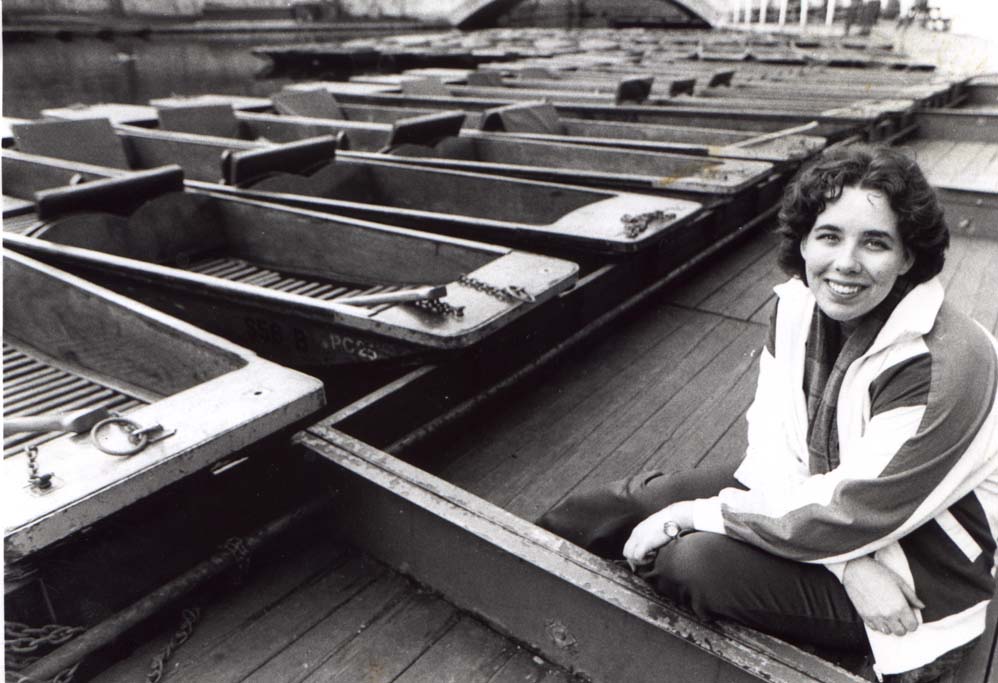
In fiction, one can hide their wounds behind a character, but in nonfiction, even Wonder Woman’s lasso and invisible jet can’t protect you.
“If you wanted to be a writer of any meaning or repute, you wrote fiction, or maybe poetry. You wrote novels or short stories. That's how you got taken seriously. There was no creative nonfiction class at the time. It's called the fourth genre, right? Sometimes it's still considered, I think, a little beneath. It's narcissistic. It has all these horrible clichés associated with it. But I've always been interested in nonfiction more than fiction, which speaks to The Hot Sheet. Eventually, fiction left my life entirely. I even stopped reading it.
“And I know the year I stopped reading it—when I got divorced.
“It was Lionel Shriver's Post-Birthday World, which spoke to what I was going through—what will happen if I stay with my husband or don't stay with my husband. Post-Birthday World is about the choice you make whether to stay with someone or not, and it follows both.
"That was the last novel I read.”
The loss of her marriage led to Jane’s continued push to help writers. A new sort of marriage where a person whose thirst for knowledge finds a home helping those in need of it.
With personal consultations, speaking engagements, books, a blog, and now online education, Jane has created her own little empire. But this time, she's in charge. No C-suite to appease. Just her gut instincts and quest to focus on helping writers achieve their goals.
Advising writers on success isn’t as easy as “just sit down and write.”
“The very first thing that surprised me goes back to the mid-2000s. I remember the moment. I was sitting next to Michael Martone, who’s a creative writing professor. He had published many books at this point, yet I was new enough to ask him the question, ‘You've watched countless students come through your program. Can you tell which ones are going to make it?’
“His response was basically, ‘No.’ Explaining that once people are out of the school environment, without the deadlines or someone to hold them accountable, they just stop writing. They get distracted by life, and writing quickly takes the backseat. It's the ones who are able to hold themselves accountable and stick with it who succeed.
“What he said was hugely influential, and has proven true. It's not necessarily the ones who are talented or stars of the program, but the ones who keep practicing and showing up day after day. I don't think it’s necessarily that they hold themselves more accountable, or that they're more natural writers, or that they have bigger motivations, but there’s something about their lives or situation that makes the difference.”
Paying bills, children, a mortgage. Life can simply get in the way of creativity. There’s a tipping point when a writer can write for free or should demand payment for their words. Finding that balance is a struggle, especially for an early writer.
“I'm still a proponent of writing for free, but it has to be the right opportunity. A lot of people don't know how to triangulate opportunity, worth, and time. Maybe they write for free, and it turns out well, so they keep doing it. Over time, they don’t realize they've outgrown that opportunity and need to expand.”
People get complacent. Which brings us back to risk and knowing when it’s time to move on—a repeated theme in “The Book of Jane.”
As someone who has advised hundreds, probably thousands of writers, I had to ask what advice she would give herself, if she were her client.
“I have a much too passive pattern of waiting for people to approach me because of my reputation. It's easy to just sit back and let the opportunities roll in, which are varying levels of quality. I end up saying yes a lot more often than I should, which then takes away time from things that would actually lead to growth.
“If I'm not the one deciding where my career should go, and I'm just waiting for other people to tell me, obviously, it's just career by happenstance. If I want to see myself working with a company that's bigger than me, or if I want to see myself working with authors who wouldn't normally approach me, I have to put myself out there and risk getting the rejection.”
Rejection. A constant in a writer’s life. Many entrepreneurs would be satisfied chugging along with the business Jane has built, but perhaps those lessons her mother instilled at a young age—to continue to learn and pursue knowledge—provide moments of pause to reevaluate life at every step.
“I was having this conversation with Mark [Griffin] about how I drool over the data that Publishers Lunch and Publishers Marketplace are sitting on, in terms of their deals database. Michael Cader, who founded and still runs it, has only scratched the surface of what can be done. I wonder, does he have the resources to really dig into what he's got … which raises the question, why don't I get in touch with him and suggest a partnership or suggest they let me crunch the data?
Someone with the success of Michael Cader can be an intimidating ask. But I press further because everyone has a moment of nervousness that needs to be challenged. The young Jane Friedman, hesitant to ask for what she wants, is long gone. Remember, she's Wonder Jane.
And then, in a true, transparent Jane moment, she admits …
“Well, part of it is fear. Who am I to suggest such a thing? This fear, which affects every writer. Myself included. People think it doesn't affect those who are successful, but, of course, it does.”
There you have it. Everyone has fears. Don’t be surprised if one day Jane ends up making that call to Mr. Cader. As she said way back in her F+W days, “What do I have to lose?”
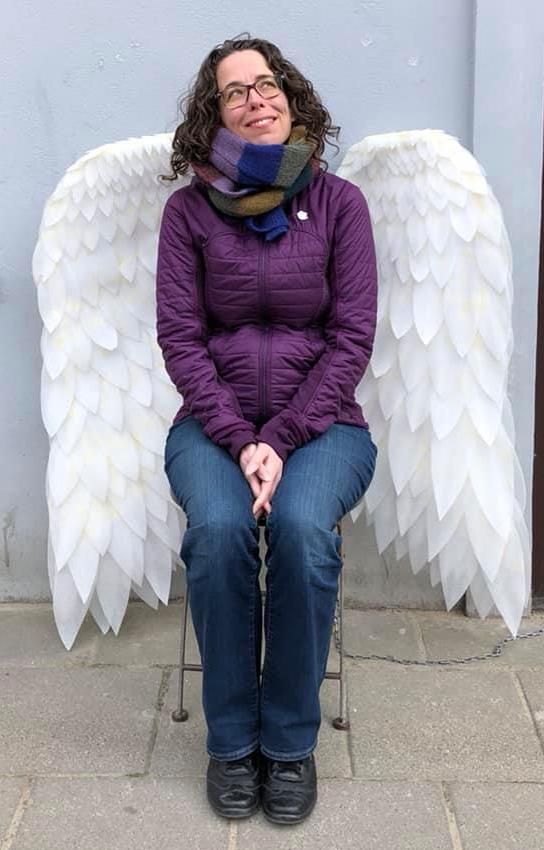
Jane is a data junkie, which is not the norm for a creative brain. Her balance of both skillsets helps writers understand the business side, which is not only critical for any industry, but also why she is so unique. No one else offers these insights.
“In the context of writing and publishing, there's so much mythology around successful authorship. A lot of misconceptions exist about the money to be made, how many copies sell, what it means to be a bestseller. As soon as you get the numbers on the table, it amounts to a wake-up call. Analyzing the actual data also has the helpful effect of taking down some of these successful writers on the pedestal—not that they need to be taken down a peg, but there's a lot of smoke and mirrors in this business.”
Transparency would serve everyone. Bless the Chief Happiness Officer.
“For instance, there was The New York Times piece that just came out about how publishing is doing during the pandemic, and it had a stat from NPD BookScan. About 90% of titles released in 2020 sold fewer than 5,000 copies.
“Now, to me, that's a shrug moment. I figure it's like that every year. Unfortunately, The New York Times didn't say if that was an increase or decrease. It just put the stat out there without any context, which I thought was really irresponsible. In fact, I'm working on trying to find out what the average is prior to 2020 of how many books sold less than 5,000 copies, because I think it's probably pretty close to 98%. People need to know that.”
While many writers cringe at the thought of diving into statistics and data to help their marketing plan, a big part of any successful author’s strategy is analyzing their options. Every writer wants their book to be on The New York Times Best Seller list. But then they realize, maybe they have to self-publish. Maybe they should write a few short stories. Maybe they should write for some websites or magazines, leading up to the novel. They could take paths other than novel writing to feel creatively satisfied, and re-examine whether the book is really the goal.
Getting writers to comprehend realistic paths available to them can sometimes feel like you’re hitting your head against the wall.
“They're trying to go from zero to the biggest goal one can imagine for a writing career. It almost never works that way. They're looking for a lightning strike. Maybe part of it is misconception about how these things work. It's the old cliché about seeing someone who has this enormous success and assuming it happened overnight, and it most certainly did not.
“There’s not enough emphasis on small, quick wins. Strangely, I don't know that people actually have a lot of respect for the creative process. They expect that whatever they put out, people are just going to love.”
Jane practices what she preaches, as her own business has grown in small increments. She has a new partner now, in both love and business—her husband, Mark Griffin. She’s no longer alone in her dogged pursuit of perfection. Mark leads the charge for her online classes.
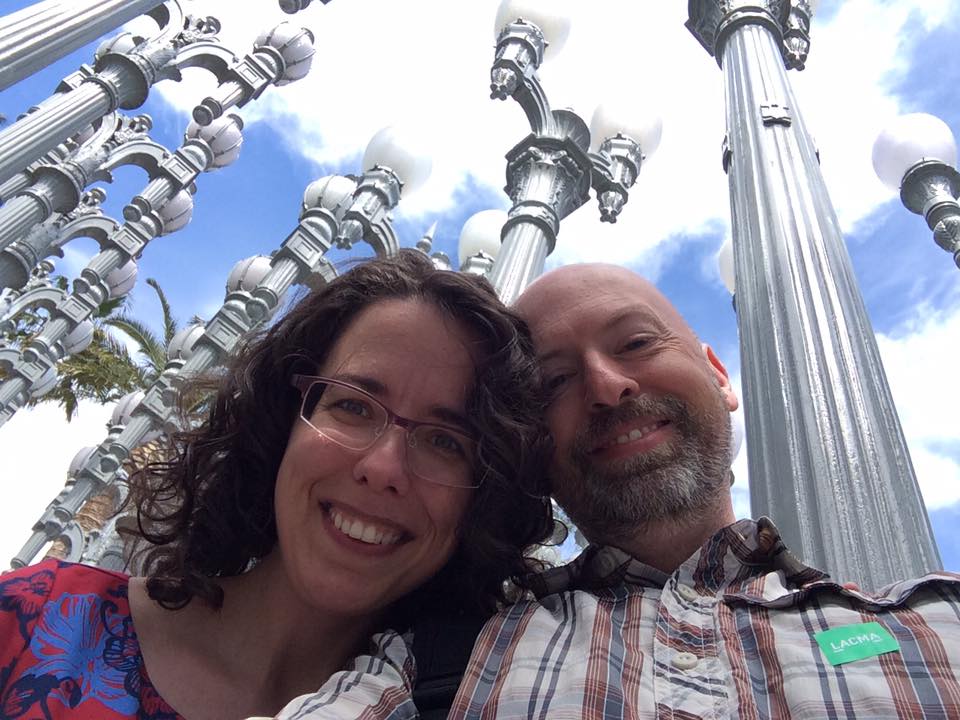
“Mark and I started off as coworkers at F+W. So our relationship was formed in a business context before it became romantic, and now it's both. He's very supportive and a great listener. He never tells me to shut up about publishing.
“In my life, the personal and the professional do really blend together. It's not that I don't have a life outside of my business, but it really is my identity still, and I don't do a lot of things outside of my work. I like it that way. I take enjoyment out of it, but it's not the same for him. I always want to be mindful that he's not feeling pressured to work at hours that even I wouldn't normally work.”
Their collective work ethic circles back to Jane’s childhood. The joy she felt drowning in a book and finding endless ways to amuse herself in her small, country town.
“When I was a kid and playing outside with friends, one of my favorite things to do was pretend I was working, often at a drive-thru at McDonald's, which I actually did end up doing for a while when I was a college student.”
Fast-food worker was only one of a list of odd jobs Jane held: Papa John's pizza delivery, delivering newspapers on a moped, working at an amusement park, and photocopying 10 years of car purchase, lease, and rental agreements as a temp at an auto dealership that was being sued.
She describes those months as the dullest of her life, which possibly prepared her for advising writers how to survive the tediousness of querying and staying in the game.
But what does a writer do who truly has talent, yet is frustrated because they can’t seem to get any traction?
“I've actually given this question a lot of thought. If I do another writing book, it's going to be about staying in the game. How do you do that when you're not getting any validation, encouragement or signals that it's going to work out for you?
“Because of social media, in particular, you see all of these signs of success and growth and progress for others, and it has the effect of short-circuiting people, making them bitter or resentful, which is very natural. But social media exacerbates it.
“Just after I graduated college, I subscribed to the AWP: Writer’s Chronicle. These magazines are full of contest winners and people who are succeeding. Eventually, I canceled my subscription. It was too difficult to look at because I wasn't writing. Stopping it was valid. You have to cut yourself off from hurting yourself in that way.”
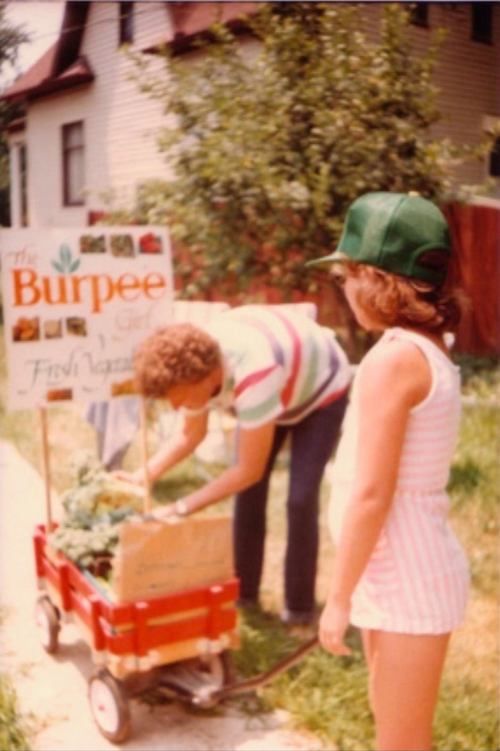
Therein lies the rub. Writers need to pay bills, so the opportunity to write full-time often eludes us. We beat ourselves up for not getting words on the page, even though we need to put food on the table and have a roof over our heads.
Is it ever OK to take a break … and give yourselves a break?
“One piece is leaving the game for a while. That takes a lot of shapes and forms. I've noticed when something else is going right for people—a side project, or a job—it actually gives them confidence to come back to writing and succeed.
“The other solution is finding your community. Too many people try to go it alone. A lot of the clients that I meet work with me because they literally have no one else, and it's a little bit sad that they're that isolated.”
The world of social media has helped writers connect and discover writing groups, but Jane warns that a bad writing group is worse than having none at all, as they can actually make you feel demoralized. There are definite pros and cons to a community.
“Having people give you reality check or offer encouragement and support are important. You can find it online. You can find it offline. But I think there are some people who might prefer to go through all this in a more isolated way. That describes me in some regard, because I did try a writing group to write more creative nonfiction. It turns out, I don't actually like those sorts of setups.”
What we think we want in life always changes. The writing goals I had in 2009, when I first met Jane on Twitter, are different than the goals I have now. Both of our lives are totally different than when we first tweeted each other about bourbon, tequila, and Rolos.
It’s not only OK to change your goals, it’s a necessity in life.
As we look back at our choices, it’s easy to see mistakes we made along the way. Hindsight and all. But I often wonder what advice we would offer our 18-year-old selves, if we could go back in time.
“Maybe one reason I find the question difficult is the odd sensation that I'm not sure I could offer my younger self any advice she would listen to or take. It's not that I haven't grown or learned things, but I'm sure 25-30 years ago I'd be dismissive of such advice, even if it were coming from myself.
“As a child and young adult, I always kind of resented it when older people would say, ‘When you grow up, you'll understand’ or ‘Take it from me, blah-blah-blah-wisdom-I've-learned from living life.’ Look, maybe such people are right, but that doesn't make the advice or wisdom easy to apply or integrate. You have to approach people from the standpoint of what would resonate with them now, or how they're feeling now, not what they will only appreciate in hindsight.
“The other thing is my 18-year-old self probably has something to teach me now. You get older, it's easy to stop dreaming, or to be less flexible in your thinking, maybe you feel energy and enthusiasm dissipate (or I have). The sharp edges of idealism you have when you're younger get smoothed away into complacency and 'I'm just going to stay comfy right here.' I thought as a 20-something I could bend the will of a corporation. That was folly, but hell, I did it in small ways on occasion. Today, would I even try? I don't know. I really pick my battles now.
“In any case, if I could tell younger Jane something, I'd pose a question: Does using silence as a weapon hurt yourself more than your target? My mother used the silent treatment on me when she was unhappy, and I hated that, but unfortunately, I adopted that habit myself and still fall into it on occasion. From a young age I understood it as a problem, so I think I would listen to an older version of me questioning its efficacy. I would offer myself these questions when tempted to shut down: Can I name what I need right now? Could I tell this to the person I'm unhappy with? Can I figure out a way to make this easier on myself? Am I benefiting myself by continuing to act in this way?”
I was struck by Jane’s last question to self: Am I benefiting myself by continuing to act in this way?
We often get stuck, whether it be sticking with a relationship too long, a job, or even a writing project that we should have moved on from years ago.
“I think one thing I got right, unintentionally, was sitting in the same place for a long time, and by that I mean sticking it out at F+W for as long as I did, when I had wanted to leave at so many moments. I thought, all my problems will be solved if I just leave this job and move on to some other place. I'm stuck in Cincinnati. This is bad for me, et cetera, et cetera, et cetera.
“I was in my early 20s, and most people at that age don't sit in one place and spend 12 years in their first corporate job, but I did. Part of it was circumstantial. I really did want to leave, but couldn't because of a marriage. We had to stay at the school my husband was studying at, but it also had huge benefits for me. I just stuck around longer than anyone else. People came and went and had other priorities, and I was still there.
“I've seen the same thing play out with putting up my website before I needed it, building an email newsletter list before I needed it, getting on social because I was curious and letting it grow before I really needed it to have some payoff. I keep giving that advice to people all along the way, but most people don't stay at the game long enough to see the payoffs.
“I've always seen the value of that long, slow build and the ability to gain mastery or institutional knowledge or have perspective—to see all the different ways these things play out. That's been my superpower—being in the industry as long as I have and not leaving it.
“Now, there was a drawback to sitting in one place for so long, which is, for publishing in particular, so much of what happens, happens in New York City and knowing the people in New York. Because I hadn’t been exposed to some of the big publishing people, at least not until I got active on social media with Twitter, it often made me feel like I've never really been in the game, officially. I've always been on the sidelines watching, which may sound ridiculous to some people, but when you stay in the Midwest for an industry that's based in New York, there are definite drawbacks.”
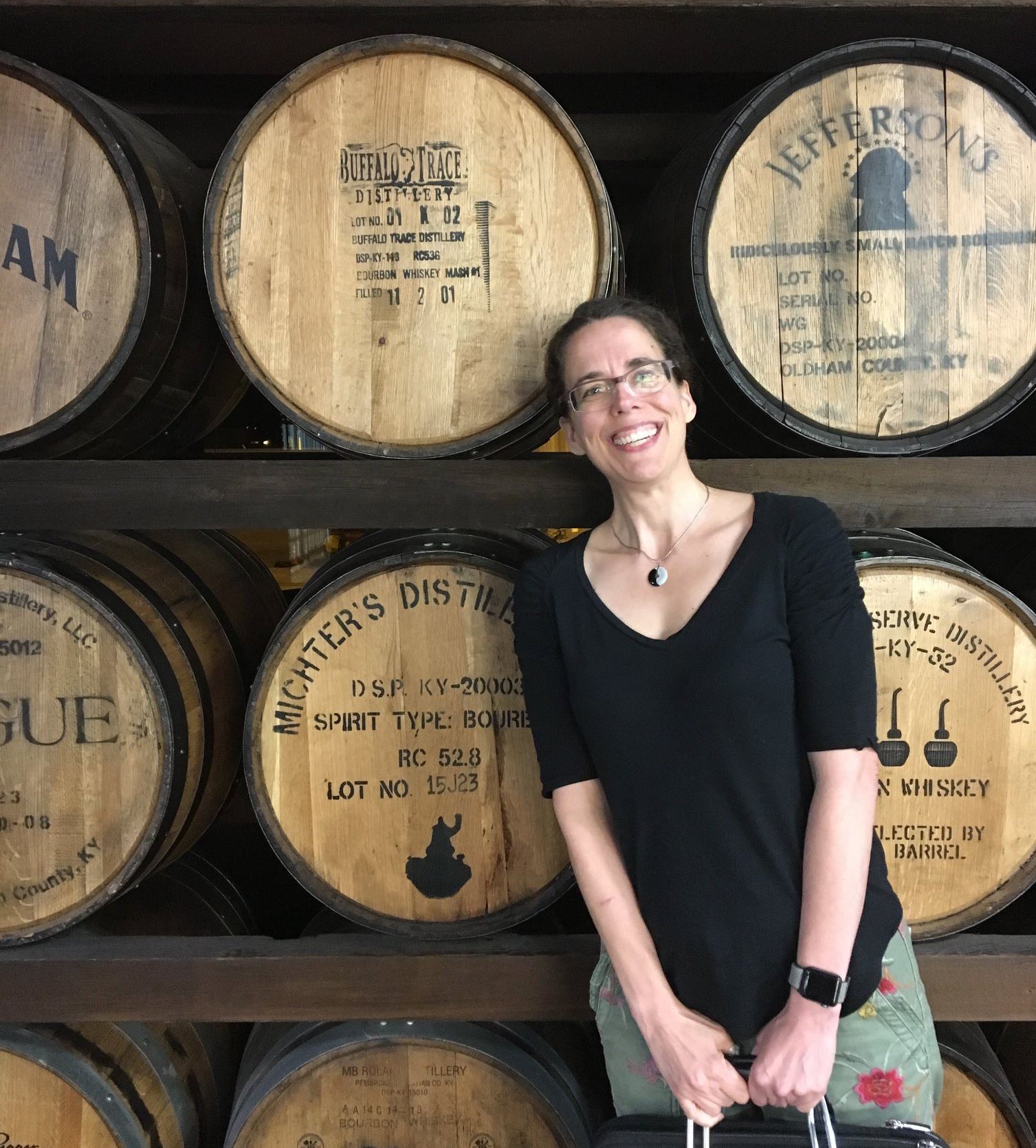
New York City is not for everyone, and Jane has little to no regrets about not moving there. Hindsight can be torture though, thinking everything could have been different if you just did this or did that.
I'm a big believer in learning lessons from failure, and that those choices and events make us the people we are today. Some events can even be described as defining moments. Life before X, and life after X. It's almost as if your life is split in two.
“I would say, on the most personal level, it was leaving my first marriage, and that coincided a little bit with leaving F+W. That moment in my life was hugely … confusing. I didn't really know what was going to happen. It was an enormous change. It forced me to think about being self-reliant and independent, and in a whole other manner I hadn't really conceived of.
“If I did have one big mistake of my life, it wasn't even getting married to the person I divorced. It didn't turn out to be a successful marriage, but I don't think that was a mistake. It was taking the job at the literary journal, leaving my 10-year track professor position, and taking a job that I knew in my gut I was taking for the wrong reasons.
“I stayed two years. There were warning signs all over the place. It was so bad that I had to resign before I got fired. I didn't have enough time to find another job, and I got pushed into the freelance life. I just literally had no choice, unless I wanted to leave in disgrace.”
Life takes us in unexpected directions, and sometimes those off-road detours lead us to the path we were intended to be on all along. It’s easier to be less scared of risk when your options have run out.
“I really did need someone to push me. I don't think I realize how much power I already had in terms of being able to build a business because people were so negative about the struggles of freelancing. I should have never been as apprehensive as I was. I didn't recognize the value of what I had.”
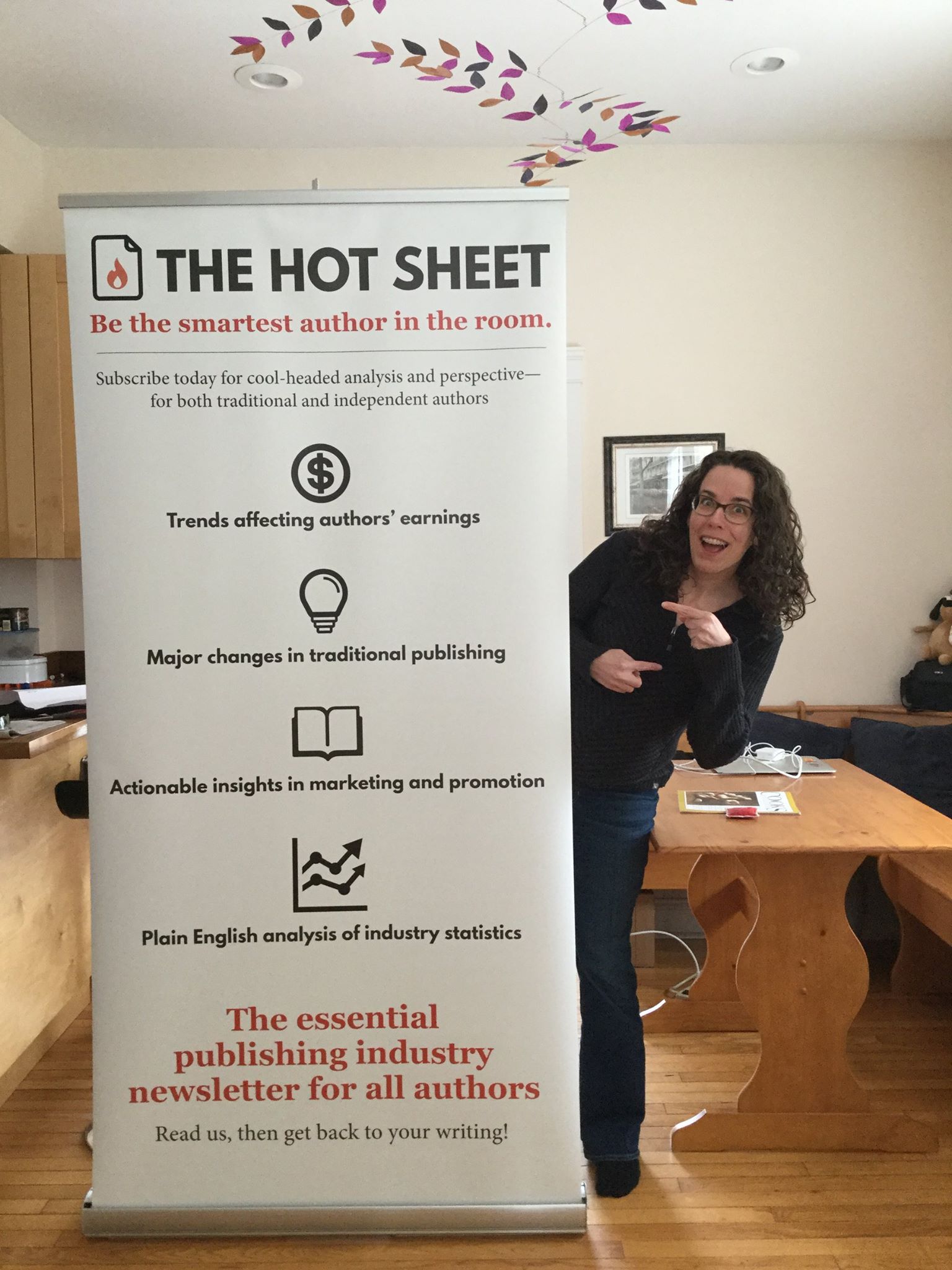
I’m imagining the ultimate battle in “The Book of Jane”—the disease-to-please, risk-averse character, facing down the scary freelance world of no health insurance or 401K, trying to decide if she should leap off that cliff into independence.
Was she ready to evolve and achieve her goal?
“I’ve made some really hard changes in my business life that I'm not sure I would have made in an earlier Jane era. I've walked away from money. I've walked away from deals and offers because I realized it was what other people wanted and not what I wanted. It may seem small to outsiders, but I stopped taking critique work, even though it was the most successful part of my business, by far, in terms of interest and income. I asked myself, ‘Where has doing this work over and over again gotten me? How does it progress what I want to do?’ It doesn't. I'm just doing it literally for the money. That was the only reason.
Drawing on her days working on the college newspaper, The Hot Sheet allows Jane to focus on helping writers by providing the industry information they need, even if they don’t yet realize they need it. And to scratch the itch of narrative nonfiction, Jane created “Notes from Jane” in her Electric Speed newsletter, providing short bits of personal writing.
“The Hot Sheet is my way of trying to work out of that hamster wheel of writing advice while building my reputation and knowledge about the industry. It's not just about telling writers how to get published, and then trying to deemphasize those aspects of my business that feel like a cycling through of writers who I can tell are probably not going to get to where they want to be. It’s the stereotype of the person who's a retired professional, and they're finally going back to their first love of writing—they're writing novels without reading a single one, yet they want you to help them get published. You go through your 1,000th client like that, you think, why am I doing this?”
The internal question that haunts a disease-to-please personality—is it helping me, or am I putting my needs on hold because I'm spending all my time helping people? Sure, we feel warm and fuzzy when helping others, but we also need that balance of carving out time for what makes us happy.
In any service business, especially one that involves insecure creatives in need of direction, that business model benefits from figuring out how to nurture ourselves while also nurturing others.
“There are certain parts of my business I really enjoy spending time on. I love building out new curriculum and finding more effective ways to convey ideas and concepts so people have those aha moments more frequently—discovering better teaching methods and materials, better courses, better webinars. That's really fulfilling. Less fulfilling is just working one-on-one on submission materials.
Certain one-on-one relationships are life-changing though. Wonder Jane quite literally did just that for me.
It was 2009. I hadn’t a single published clip beyond my own brand-spanking-new blog. But I had Jane Friedman as a follower. This was long before her official blue checkmark, deeming her the industry pro she is. This was OG Twitter—the writers’ water cooler, where no one ranted about politics, and everyone was there for the fun of it.
Luckily, I had no idea Jane was reading my blog. Probably a good thing, or I would have frozen in fear to post anything. When she invited me to Writer's Digest’s 90th anniversary, I used my last air mile and flew to Cincinnati to celebrate at a dive bar full of writing nerds. I had found my heaven. Jane greeted me with that shot glass I mentioned earlier and an offer to write an article for the Inkwell section of WD, called “Confessions of a Tweetaholic.”
When I submitted my draft of the basics on how to use Twitter—one my father proudly tore apart to the point of looking like his red marker had committed murder—Jane responded with a simple, “I think what will really draw people in is a great story about how Twitter has resulted in change/success, is your unique and personal voice.” (Yes, I still have the original email she sent me.)
My voice? Honestly, I was such a baby writer that I hadn’t even realized what one was, let alone that I had one.
Jane was the first person, besides my father, who believed in me as a writer. By recognizing I indeed had a “voice,” she provided the aha moment of validation every writer needs, making me feel safe to write with reckless abandon and bleed on the page.
Countless writers look to her for those lessons.
“A poet said one of the smartest things about voice. When you're just starting out, you're reading authors producing work that's in your category. Whether you like it or not, you're going to start picking up style choices from them. You're going to absorb so much, and you're going to have favorites. That’s why you get all the college students … writing like Hemingway or whomever it is they’re reading. You start mimicking these other writers.
“Rather than that being a bad thing, it's what you need to do. When you see something that really resonates with you and you think, I wish I wrote like that, try it. His argument was that voice comes from not just one writer, but many, many writers. Then your voice is going to end up as this new creation that comes out of all of these others. I just thought that was a beautiful way of thinking about it.
“It takes time to develop your voice. There are some people who have a comfort level with themselves, so it gives them that confidence to say what they think without reservation, without second guessing, without labor ... the type of self-conscious labor where you're not producing something better because you’re tortured not knowing who you are or what you want to say.
“I do think that age can help with voice. When the writer is more at ease with themselves and what they're saying, that's when you see that ineffable thing called 'voice' come through.”
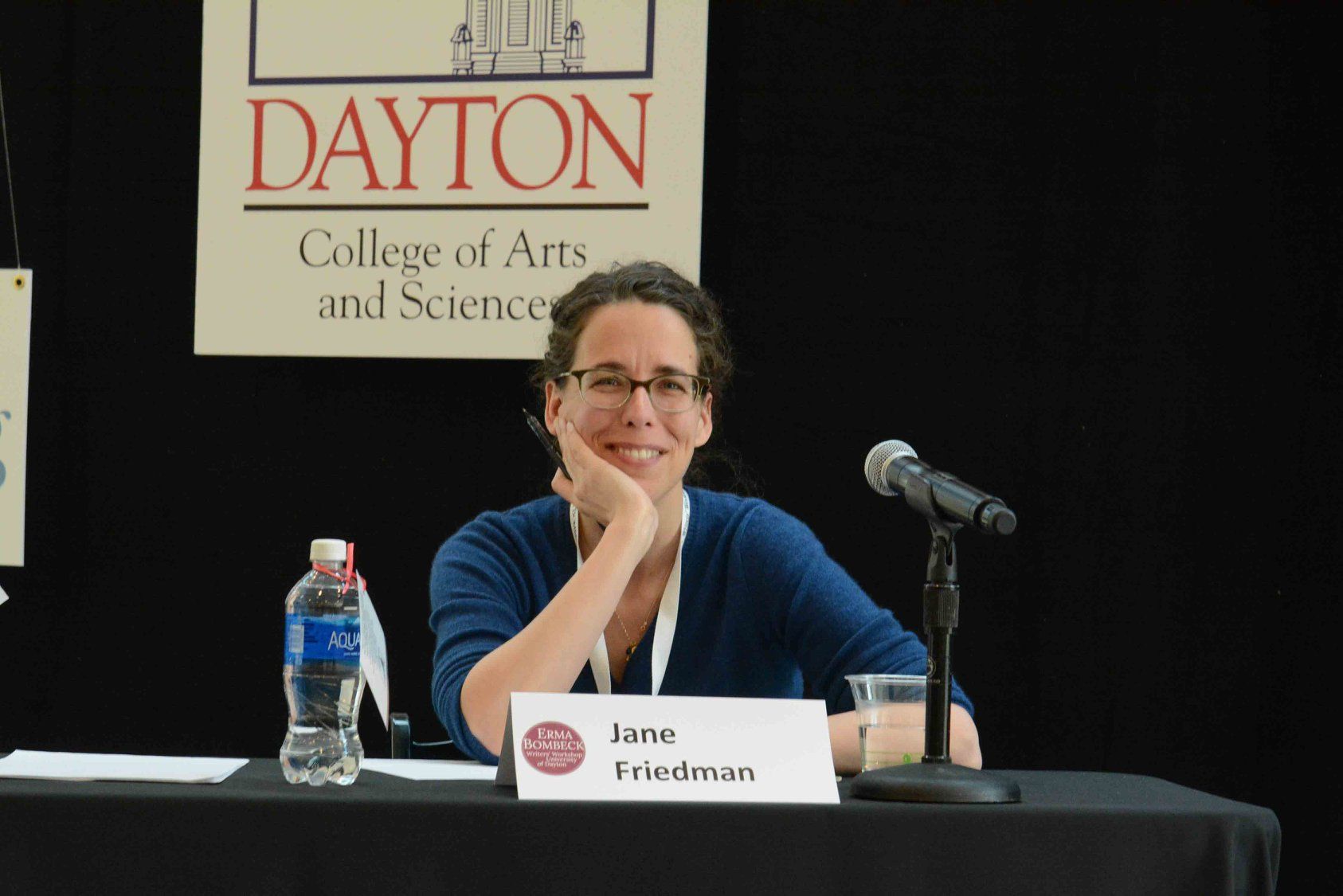
If you have any doubts about who Jane Friedman is, a few moments perusing her Tumblr will illuminate the many layers of her psyche. From publishing tips to quotes that speak to her.
This quote she posted by Oliver Burkeman summarizes our lengthy discussion:
“When stumped by a life choice, choose ‘enlargement’ over happiness. I’m indebted to the Jungian therapist James Hollis for the insight that major personal decisions should be made not by asking, ‘Will this make me happy?’, but ‘Will this choice enlarge me or diminish me?’ We’re terrible at predicting what will make us happy: the question swiftly gets bogged down in our narrow preferences for security and control. But the enlargement question elicits a deeper, intuitive response. You tend to just know whether, say, leaving or remaining in a relationship or a job, though it might bring short-term comfort, would mean cheating yourself of growth. (Relatedly, don’t worry about burning bridges: irreversible decisions tend to be more satisfying, because now there’s only one direction to travel—forward into whatever choice you made.)”
— Oliver Burkeman
But it’s the following quote that’s my favorite—and reaffirms why she’ll always be the transparent and honest Wonder Jane this world needs.
“Maybe you’ve had this experience: You throw a bay leaf into a broth, and it doesn’t do anything. Then you throw the rest of the bay leaves you bought into the broth, too, because you only bought them for this, and you’ll be damned if you don’t taste a bay leaf, and they don’t do anything, either. What could be the cause of this? I’ll tell you. Bay leaves are bullshit.”
— The Vast Bay Leaf Conspiracy
*Feature Image: Jane Friedman / created for Pipeline Artists by Graham Sisk
Browse our Symposium publishing sessions—we tell you what you need to hear to succeed. No patting on the back. Just the Hard Truths™ from industry professionals.
